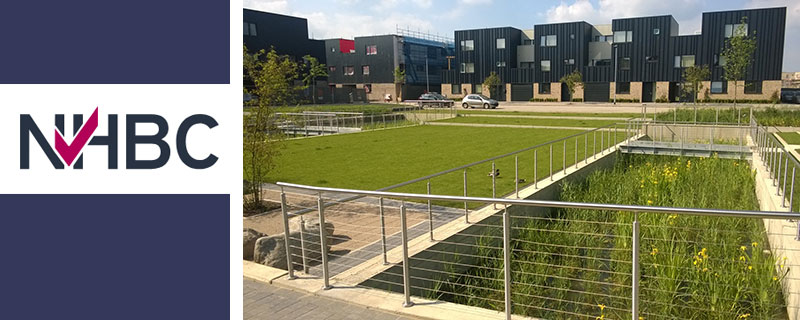5 billion litre potable water shortfall in UK by 2050
New report from NHBC Foundation projects five billion litre potable water shortfall in UK by 2050
The NHBC Foundation has published a new report – the Water Compendium. This comprehensive report examines water efficiency and water reuse in residential development in an international context. It features comment and analysis from ten countries demonstrating leadership in water management in the urban environment, with a focus on housing developments.
Demand for water globally is rising due to a range of factors including population growth, urbanisation and increasing need from agricultural, industrial and energy sectors. Across the globe total freshwater use was four trillion m3 per year in 2014. According to the United Nations Educational, Scientific and Cultural Organization (UNESCO), during the last six decades municipal water consumption grew at the fastest rate when compared to other uses.
The Water Compendium reveals that in the UK we can expect a projected short fall in potable water of five billion litres per day by 2050. To address this gap the government has announced ambitious targets, some of which relate to reductions in domestic water supply. While every country is unique, the Water Compendium encourages us not to ignore critical insights and learn from successes in other geographical areas.
The countries studied in this new publication, which included Japan, the Netherlands and the United States, were assessed against the same set of parameters and presented in a unified format for easy comparison. Each country report provides information on the geographic, climatic and statistical indicators, as well as a brief review of their approach to water efficiency targeting and decentralised water reuse. Country reports also include the description of applicable requirements, central and regional/local policies, incentives (where available) and a project that serves as an example of an innovative scheme representative of good practice in that country.
The Water Compendium also provides definition of water reuse terminology. Decentralised water reuse is defined as the process of collecting, treating and reusing alternative water at or near its source. Types of alternative water sources that are most often reused in residential developments include rainwater, stormwater, greywater and wastewater.
Additionally, this report also looks at and clarifies sustainability rating standards; some new developments and refurbishment projects are designed and constructed to achieve certain ratings under different sustainability standards. Higher ratings often serve as a prerequisite for attracting sustainability-conscious investors, buyers and tenants. Most popular rating schemes include water efficiency as an assessment category and the introduction of water reuse can be driven by the desire to achieve higher ratings.
Richard Smith, Head of Standards, Innovation & Research at NHBC commented,
“Water is our most precious resource and vital to us all. The Water Compendium not only highlights the need to understand and manage water usage but also considers practical, real-world examples of how safe, clean water can be made available to everyone. That’s why I’m delighted this report from NHBC Foundation is so comprehensive – it looks at the issue of domestic water use and how this impacts house building in a broader context, considering solutions from a global perspective.”
The Water Compendium report from NHBC Foundation is available to download free here






Leave a Reply
Want to join the discussion?Feel free to contribute!